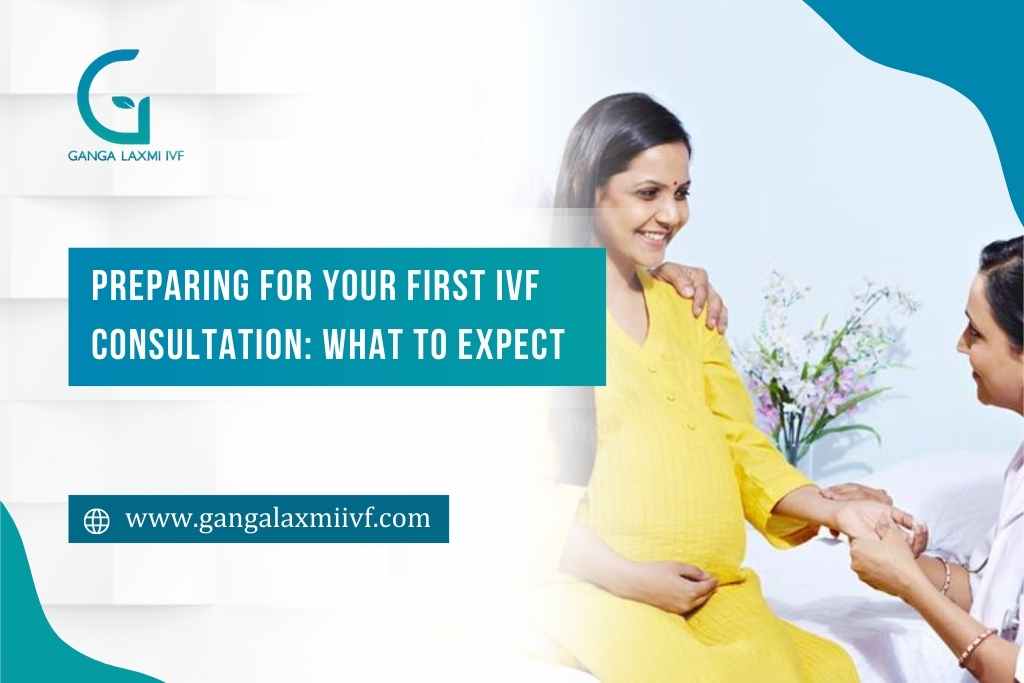Embarking the journey of IVF is not a normal thing to decide. It needs a lot of courage and strong will to walk through this path. Couples who have decided to begin their journey of parenthood through IVF should keep various things in mind and need to control their emotional self so that they can make decisions under full consciousness.
As you must have already told your first step in this journey would be consulting with a fertility specialist. For this, you need to look for the right hospital that suits your location, budget, requirements, etc. Then look for a fertility specialist in that hospital having expertise and experience in IVF pregnancy. At last, book an appointment with the doctor so that you get time to understand the fertility options and craft the treatment plan with doctors.
In this article, you will learn how to prepare for your first IVF consultation with the fertility doctor.
Step To Follow While Going For Your First IVF Consultation
First, you need to relax and keep your heartbeats low, it is obvious to be excited and nervous at the same time. But to make things work it is essential to be calm and subtle. Below are the steps you need to follow before visiting the IVF specialist.
1. Gathering medical history:
Medical history is the first thing the doctor will ask you to submit for your examination purpose, hence if you have any medical history then keep the document and report ready on the day of the appointment. The medical history includes:
- Previous pregnancy reports and fertility treatments
- Menstrual cycle details
- Any medical conditions and reports of past surgeries
- List of medication and supplements usually taken.
2. Partner’s Medical History
Along with your medical report, you need to arrange the report of your partners too. This includes:
- Previous medical treatments, fertility assessments
- Medical conditions
- Lifestyle factors
3. Diagnostic Testing
To assess fertility, your specialty may recommend several diagnostic tests. It is unnecessary to take all those tests to make sure that everything is fine and that you are eligible for the IVF procedure. The common tests include:
- Blood test
- Ultrasound
- Hysterosalpingography (HSG)
- Semen Analysis
- Genetic Screening
- Rubella Immunity Test
4. Discussing Your Goals and Expectations
Your fertility doctor specialist will ask about your goals and expectations. Below are some of the questions your doctor may ask:
- How many babies do you want to have?
- What is the timing and level of urgency?
- Concerns and preferences if any
5. Reviewing Treatment Options
You must have gone through some assessment tests, based on which the doctor will outline suitable and potential treatment options, which includes
- Medication
- IUI (Intrauterine Insemination)
- IVF (In Vitro fertilisation)
- ICSI (Intracytoplasmic Sperm Injection)
- PGT (Preimplantation Genetic Testing)
6. Financial Planning
It is essential to include questions regarding the cost of the IVF procedure from the fertility specialist. Clear all your doubts and understand the cost of every service included in the IVF procedure. Know the cost of consultation, treatment, medication, etc.
You can also apply for any loan or other payment methods that are being supported by the hospital.
7. Emotional and Psychological Support
During the appointment or the consultation with the doctor make sure to address the psychological aspect of treatment. Usually, couples are emotionally weak and take excessive stress which is not good for both partners, hence hospitals need to take care to keep them positive and motivated. If not in the hospital or clinic then you can join a support group that can provide you with emotional support that can make it easy for you to pass your IVF journey.
8. Preparing Question
Before the day of the appointment either write down or memorise the question you need to ask from your doctor. It is possible that due to nervousness, you may forget some important questions that can affect your decision-making. Don’t forget to ask about success rates, side effects, lifestyle recommendations, timelines, etc. Listen to the doctor carefully so that you can make an effective decision.
9. Following Steps
When you have consulted with the doctor and cleared all your doubts along with necessary concerns, then you will be provided a detailed plan outlining the next steps. That plan will include follow-up appointments, medication instructions and schedules, and lifestyle guidelines.
Conclusion
In conclusion, your decision-making process depends on the consultation done by your doctors, hence it is crucial to mentally prepare yourself the day before you have the appointment with the doctor. Do not skip consultation in any case of urgency. It is as important as the main IVF procedure hence don’t take the first step of your IVF journey wrong.


